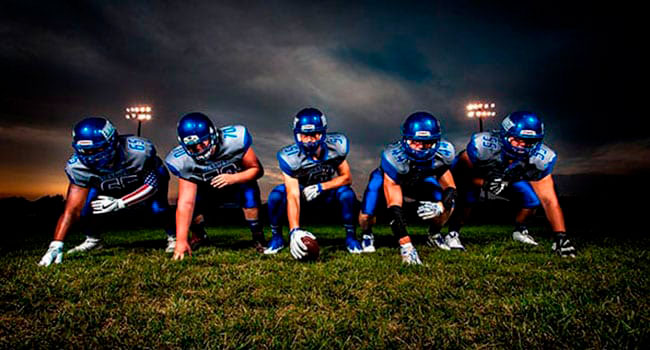 Diversity concerns have been front and centre in recent days. Prime Minister Justin Trudeau characterized a woman’s view as “racist” after she heckled him; Maxime Bernier criticized “extreme multiculturalism” before he left the Conservative Party to set up his own.
Diversity concerns have been front and centre in recent days. Prime Minister Justin Trudeau characterized a woman’s view as “racist” after she heckled him; Maxime Bernier criticized “extreme multiculturalism” before he left the Conservative Party to set up his own.
Rhetoric about diversity can be both heated and so routine as to be boilerplate, obscuring clear thinking about it. And if thinking about diversity is muddled, our common life together will suffer.
I offer as an example the Canadian Football League’s Diversity is Strength campaign, launched in 2017 as the CFL’s contribution to Canada 150.
The campaign continues this year, with the recently CFL stating: “We know that our strength comes from diversity – be that of heritage, orientation, religion, ability, thought, and so much more. This league has a longstanding tradition of welcoming players, people, from all types of backgrounds; from signing the first black quarterback to the first openly gay player, we consider diversity to be an integral part of who we are.”
Routine enough, as it goes. But why does “ability” appear in the list of “our strength comes from diversity?” Does a professional sports league honestly feature diversity in ability? Is the league made stronger by including slower receivers as well as faster ones, weaker players as well as stronger ones?
Actually, the CFL favours a rather narrow spectrum of ability. It also tends to favour younger players (cheaper salaries) over older ones, and American players over Canadian ones. Hence the minimum quota system for the latter.
We know what the CFL means, namely that it gives opportunity to those from diverse racial, ethnic and immigrant backgrounds on the basis of their ability to play football. That’s a fair claim and an important one.
But sloppy rhetoric makes a false claim. The CFL doesn’t celebrate diversity of ability, but rather seeks to celebrate a fairly narrow definition of it.
CFL commissioner Randy Ambrosie is enthusiastic but makes the same false claim: “[The 2018] initiative builds on the strength of the campaign we launched a year ago, when CFL coaches, players and fans rallied around this positive message by donning Diversity Is Strength T-shirts. Football is the ultimate team game because it welcomes and includes participants from every background as well as of every shape and size. It’s in this spirit that we invite and welcome all Canadians, be they Canadians by birth or Canadians by choice, to join us in our stadiums.”
Every shape and size?
I suppose that a safety is of a different shape and size than an offensive tackle, but while the general population includes many men who are five foot five and 140 pounds, the CFL can’t be said to “welcome and include” them on the field. And one might also note that the league is a bit short of women players.
The CFL’s main point remains. That a player who can play should not be excluded because he’s of a particular “heritage, orientation, religion,” etc. But the very criteria of who can play are determined not by a diversity of abilities but by a unified purpose: Do you have the physical talents, mental acuity and necessary character to be a good football player? If so, you are welcome. If not, you get cut.
Diversity in sports is a delicate matter, to be sure. Should a mostly white school think twice about fielding a mostly black team? Is it better for diversity or is it somehow unrepresentative? Some American universities determine there too many Asian students and limit their admission. Could it be argued there are too many football players of one race or another? Nobody makes that argument, for good reason.
In sports, diversity is supposed to serve a unity of purpose, namely the success of the football team in winning games. And that can be extended further. Diversity needs to have a centre of unity, a common mission and purpose. That’s why the same prime minister who speaks endlessly about diversity also speaks endlessly about Canadian values: diversity united by a common purpose. Indeed, the same prime minister who celebrates diversity of identities moves quite strongly against diversity of opinion.
Diversity separated from unity is generally not a good thing. Football teams and coaches insist on unity of purpose, unity of discipline and unity of performance.
Diversity is strength, but on the football field and in our common life, unity is stronger still. And that provides the context in which diversity can be welcomed and can thrive.
Fr. Raymond J. de Souza is editor-in-chief of Convivium, a publication of think-tank Cardus.
The views, opinions and positions expressed by columnists and contributors are the author’s alone. They do not inherently or expressly reflect the views, opinions and/or positions of our publication.

